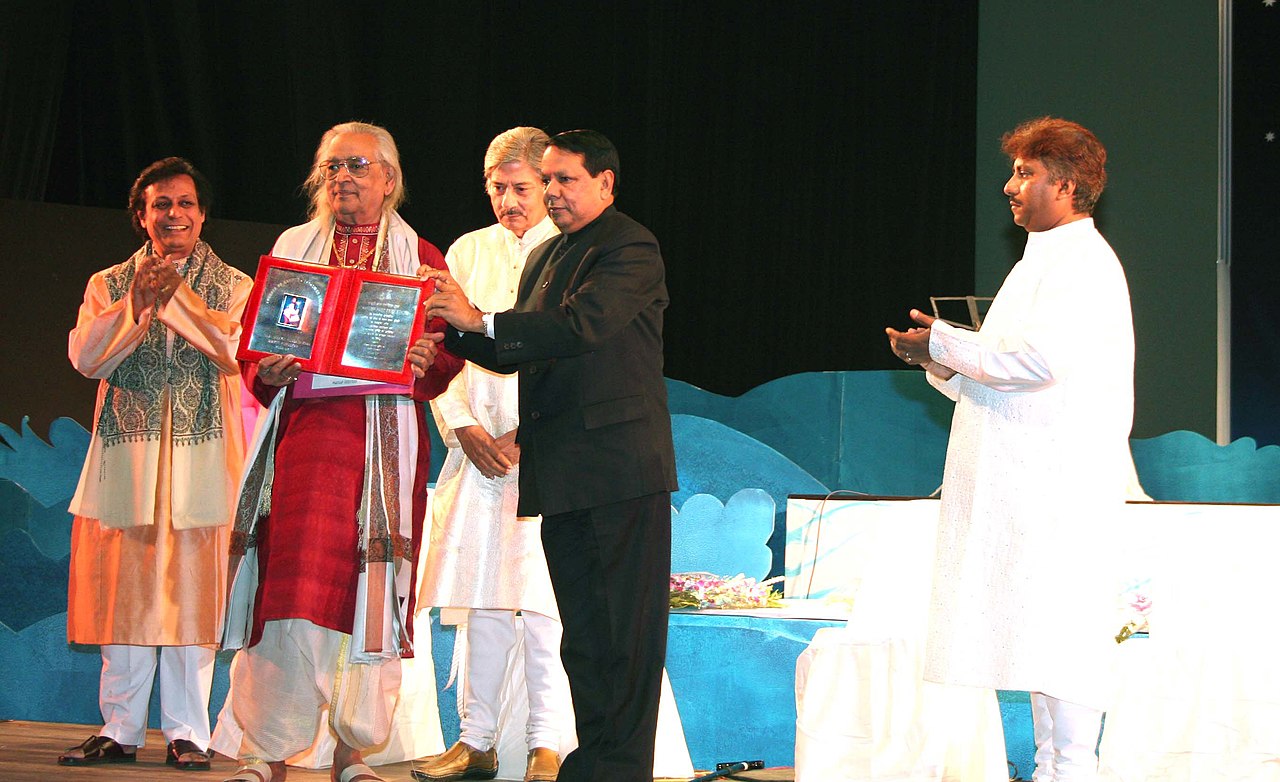Pandit Kishan Maharaj: Varanasi's Tabla Maestro and Cultural Icon

Pandit Kishan Maharaj stands tall as not just a tabla maestro but also as a revered cultural icon of Varanasi, the spiritual heart of India. His mastery over the tabla and his profound influence on Indian classical music have left an indelible mark on the cultural landscape of the country. Let's delve into the life, legacy, and contributions of this legendary musician whose rhythms continue to resonate through generations.
Early Life and Training:
Born in 1923 in Varanasi, Pandit Kishan Maharaj was destined to inherit the rich musical legacy of his family. Hailing from a family of illustrious tabla players, including his uncle, the renowned Pandit Hari Maharaj, Kishan Maharaj began his musical journey at a tender age. Under the guidance of his father, Pandit Hari Maharaj, and later his uncle, he embarked on a rigorous training regimen, immersing himself in the intricate rhythms and melodic nuances of tabla playing.
Rise to Prominence:
Kishan Maharaj's talent and dedication soon caught the attention of the music fraternity, and he quickly rose to prominence as a tabla virtuoso. His performances mesmerized audiences with their precision, depth, and emotive appeal. His mastery over laya (rhythm) and layakari (rhythmic improvisation) set new benchmarks in tabla playing, earning him accolades from both critics and connoisseurs alike.
Contribution to Indian Classical Music:
Pandit Kishan Maharaj's contribution to Indian classical music extends far beyond his extraordinary skills as a percussionist. He was a custodian of tradition, preserving and propagating the rich heritage of tabla playing through his performances and teachings. His adherence to the Guru-shishya parampara (teacher-disciple tradition) ensured the continuity of knowledge and the evolution of the art form.
Legacy and Influence:
The legacy of Pandit Kishan Maharaj continues to inspire generations of musicians and tabla enthusiasts. His compositions, including the iconic "Teen Taal," remain integral to the repertoire of Indian classical music. Beyond his technical prowess, Kishan Maharaj was revered for his humility, generosity, and commitment to his art. He mentored numerous disciples who have gone on to become stalwarts in their own right, thus perpetuating his musical lineage.
Varanasi: A Cultural Nexus:
Varanasi, the spiritual and cultural hub of India, provided the perfect backdrop for Pandit Kishan Maharaj's artistic journey. The city's rich tapestry of traditions, its vibrant music scene, and its deep-rooted spirituality served as a constant source of inspiration for the maestro. His performances in the city's temples, ghats, and music festivals not only enriched its cultural fabric but also elevated its status as a mecca for classical musicians and enthusiasts.
Honors and Recognition:
Throughout his illustrious career, Pandit Kishan Maharaj received numerous awards and honors for his contributions to music. These included the prestigious Sangeet Natak Akademi Award, Padma Bhushan, and Padma Vibhushan, among others. However, his greatest reward was perhaps the enduring love and admiration of his audiences, who revered him not just as a musician but as a cultural icon.
Conclusion:
Pandit Kishan Maharaj's journey from a child prodigy to a legendary tabla maestro is a testament to the transformative power of music and the resilience of tradition. His life and legacy continue to resonate through the corridors of Indian classical music, inspiring aspiring musicians and aficionados alike. As Varanasi's beloved son and cultural ambassador, he remains immortal, his rhythms echoing through the ages, reminding us of the timeless beauty and profundity of our cultural heritage.
